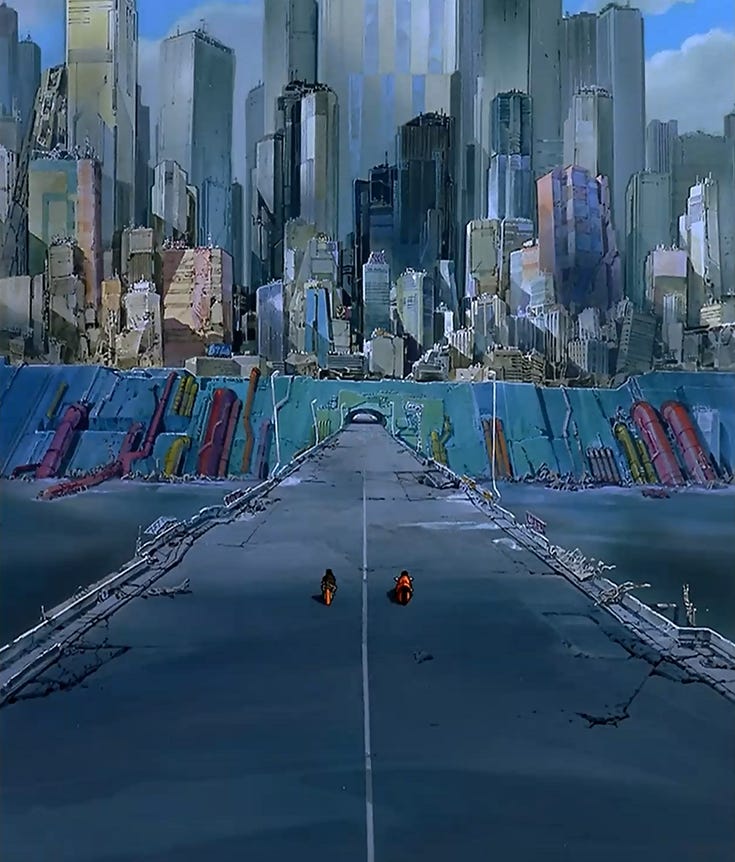A Future We Can Choose
Ben Rhodes on the need for a Democratic vision of the future.
I enjoy Ben Rhodes’ writing, and his speechwriterly gift of threading history into the affairs of our time. His How Short-Term Thinking Is Destroying America is not really about short-termism: it's a call for the Democrats -- or, more generally, for those opposed to the actions of the right -- to devise a coherent, concise, and consistent vision for the future. I bet a NY Times editor came up with the title, not Rhodes.
I understand that Rhodes wants to employ the sweep of history -- the Kennedy/Johnson years, the Cold War, the capitulation of Clinton and Obama to neoliberalism -- but he applies a laser focus on what is before us, right now:
The second Trump administration has fully normalized the ethos of short-termism. Mr. Trump does have an overarching promise about the future. But it is rooted in what he is destroying, not what he is building. By dismantling the administrative state, starving the government of funds, deregulating the economy, unraveling the international order, punishing countries with arbitrary tariffs and whitening the nation through mass deportations, he will reverse the globalization that has shaped our lives and the government that was built during the Cold War. On the other side of this destruction, he says, a new “golden age” awaits.
Ro Khanna, a Democratic congressman from Silicon Valley, worries that Democrats fail to understand the resonance of this vision. “We see all the destruction,” he told me, “but what we’re not seeing is that for the Trump voter, this is a strategy of reclaiming greatness.”
The first time I read this paragraph, I saw 'the romance of this vision', which may be more true than 'resonance'. And finally, he lays out the lineaments of the vision:
Today, change similarly [like the Kennedy/Johnson years] depends upon leaning into discomfort instead of avoiding division or offering false reassurance. Democrats must match the sense of crisis many Americans feel. Mr. Khanna summarized concerns that plague far too many Americans: “I don’t see myself in this future” and “What’s going to happen to my kids?” That existential crisis was the reason Mr. Trump was returned to power; his opposition needs to meet it.
This is not about skipping ahead to the fine points of policy proposals; it’s about a coherent vision. Instead of simply defending legacy programs, we should be considering what our social safety net is for. We should attack wealth inequality as an objective and propose solutions for deploying A.I. while protecting the dignity of human work and the vitality of our children. We need to envision a new immigration system, a clean-energy transition that lowers costs for consumers and a federal government that can once again attract young people to meet national challenges. Think of what a new Department of Education or development agency could do. We can no longer cling to a dying postwar era; we need to negotiate a new international order.
How to get there? He suggests following Zohran Mamdani's lead:
When presented with Zohran Mamdani’s campaign in New York — an innovative example of fresh political tactics and policies — many party leaders recoiled. The party seems — quite literally — afraid of its own future. It is past time for Democrats to do what Mr. Mamdani did in his campaign: get out in communities. Don’t live in fear of bad-faith attacks. Mine cities and state legislatures for new ideas. Enlist civil society, faith groups, beleaguered universities and industry in envisioning an alternative future. Abandon campaign financing that makes you beholden to donors who make you hypocrites. Make a concerted effort to facilitate generational change, so that the faces of the party are younger, different and more diverse.
The party is defined by its fears, today: afraid of naming our enemies.
Those who stand in the way of this vision for social democracy, who want to deny us a future in which we can see ourselves and our families thriving: they are our enemies. Likewise, those who push for the same ends are our allies. Let’s come together and turn the corner.
Rhodes closes with this:
Democrats must mobilize people to believe in the future.
which reminded me of Katsuhiro Otomo, who wrote in Akira, more lyrically than Rhodes:
There ought to be a future we can choose. It’s up to us to find it.


